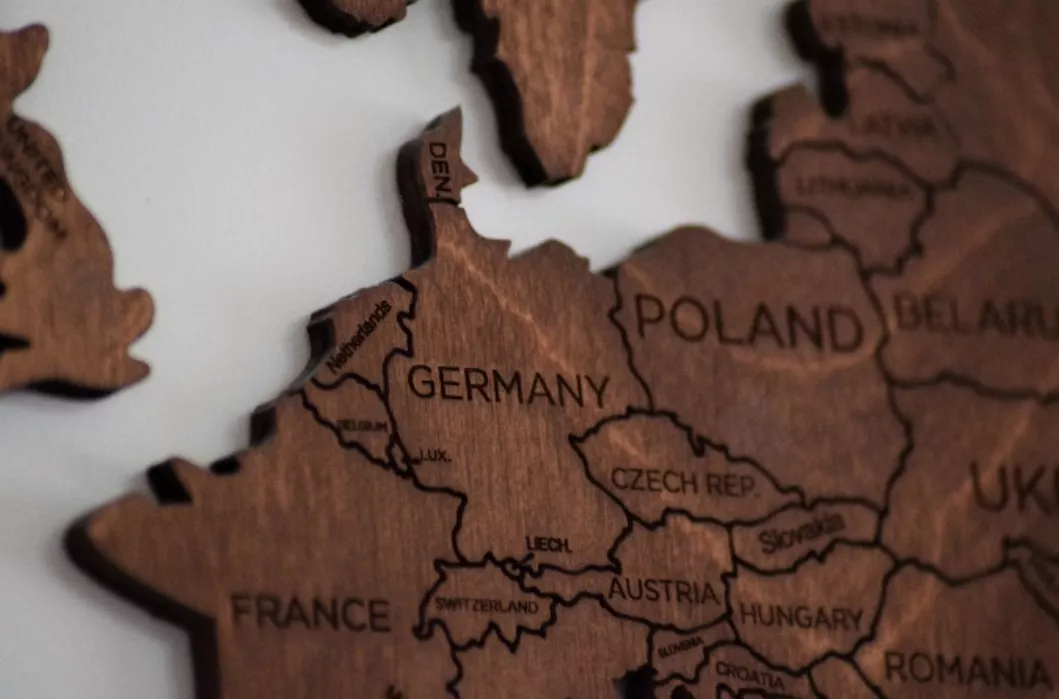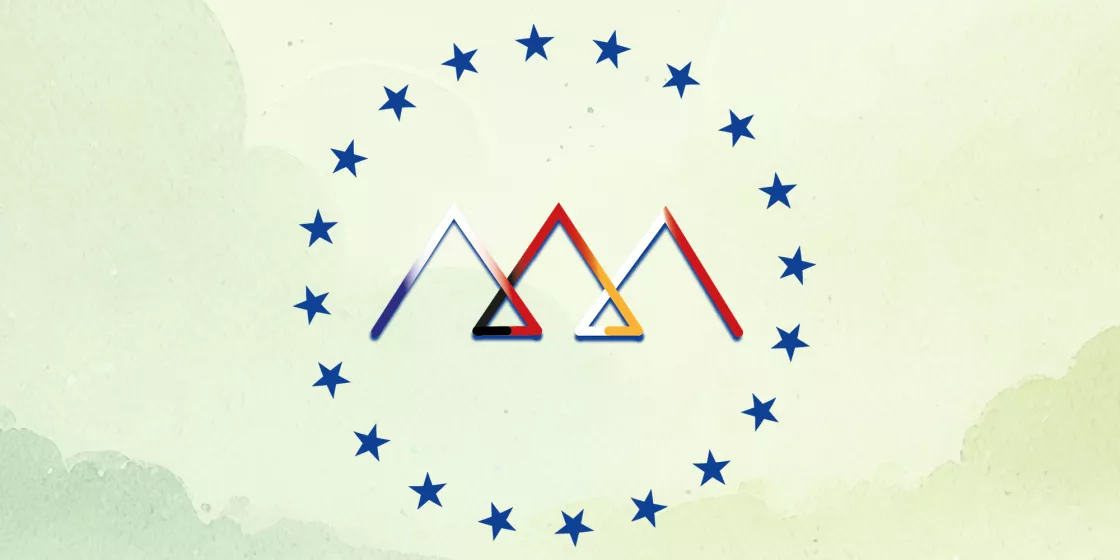The success of an ambitious European climate policy builds on the commitment and effective leadership of influential Member States such as France, Germany, and Poland. Together, these countries are responsible for almost half of all EU greenhouse gas emissions and 43% of EU industrial production. Their commitment towards climate action is therefore crucial for accelerating the decarbonisation of the EU and reaching compromises within the Council of the European Union.
Furthermore, an intensified intergovernmental dialogue between Eastern and Western Member States in particular is urgently needed in order to better reflect the different national contexts of the Member States and to ensure that ‘no one, neither individual nor region, is left behind’. Improved mutual understanding and trilateral co-operation present a great opportunity for an ambitious, socially just and solidary implementation of the European Green Deal in the entire EU.
The diplomatic format of the Weimar Triangle was established in 1991 by the German, Polish, and French foreign ministers in order to strengthen European integration and political relations. To date, this format has focussed primarily on foreign policy and security issues.

Pexels/Anthony Beck
Role of Germanwatch
Together with think tanks and environmental organisations from the three countries, Germanwatch has been calling for the establishment of a ‘Green Weimar Triangle’ since 2021. We are thereby referring to a long-term trilateral climate co-operation with broad democratic support from parliaments, civil society, and other non-state actors.
In conjunction with this, Germanwatch organises informal trilateral meetings that bring together government representatives, business representatives, and think tanks from the three countries. Through these meetings, Germanwatch gathers input to develop policy recommendations to the three governments on various EU-relevant and climate policy issues, e.g. industrial decarbonisation or carbon pricing.
The Green Weimar Triangle will now continue to be developed into a platform for climate and energy policy co-operation and co-ordination. Germanwatch is committed to supporting the Green Weimar Triangle through opportunities for official and informal exchange to promote a common orientation and mutual understanding of climate policy goals, interests, and co-operation.
Successes
- October 2021: Germanwatch calls for the Green Weimar Triangle.
- Since 2022: Germanwatch brings together experts, government and business representatives from Germany, Poland and France as part of high-trust expert working groups, networks and as a regular ‘Green Weimar Triangle’ Roundtable.
- 22 April 2024: Together with representatives of leading think tanks, environmental organisations, companies and scientific institutions in Germany, France and Poland, Germanwatch publishes an open letter to the French, German, and Polish climate and environment ministers and foreign ministers, calling on them to establish a ‘Green Weimar Triangle’.
- 22 May 2024: The foreign ministers of the Weimar Triangle countries Baerbock, Séjourné and Sikorski agree on a new Weimar agenda for a strong, geopolitical EU, in which the three countries commit to increased trilateral co-operation on climate action.
- 9 December 2024: The ‘Green Weimar Triangle’ network initiated by Germanwatch draws up a policy paper with joint recommendations for the European Clean Industrial Deal: ‘Policy options from think tanks and industry representatives of the Weimar Triangle countries; Towards a cohesive Clean Industrial Deal that supports net zero’
- 9 December 2024: Germanwatch and the Genshagen Foundation, in co-operation with the French Embassy in Germany and the German–Polish Chamber of Industry and Commerce, organised a high-level roundtable as part of this year’s Genshagen Business and Energy Dialogue on the topic: ‘Green Weimar Triangle: Shaping the sustainable future of European industry together’. See the event's executive summary here.
Resources
- Deutschland, Frankreich und Polen: Das Weimarer Dreieck muss grün werden – Offener Brief an die französischen, deutschen und polnischen Klima- und Umweltminister:innen und Außenminister:innen
- Policy Paper: A Clean Industrial Deal for a Net Zero Weimar Triangle; Recommendations from Think Tanks and Industries
- Auswärtiges Amt – A Weimar Agenda for a Strong, Geopolitical EU
- Euroactiv – Germany, Poland and France: Recasting a Green Weimar Triangle
- Blog – Neue Chancen für deutsch-polnisch-französische Klimaschutz-Kooperation
- Neue Chancen für deutsch-polnisch-französische Klimaschutz-Kooperation – Tagesspiegel Background
- Pressemitteilung: Grünes Weimarer Dreieck sollte Impulsgeber für EU-Klimapolitik werden
- Pressemitteilung: Umweltorganisationen aus Deutschland, Polen und Frankreich fordern von ihren Regierungen enge Kooperation für Klimaschutz



